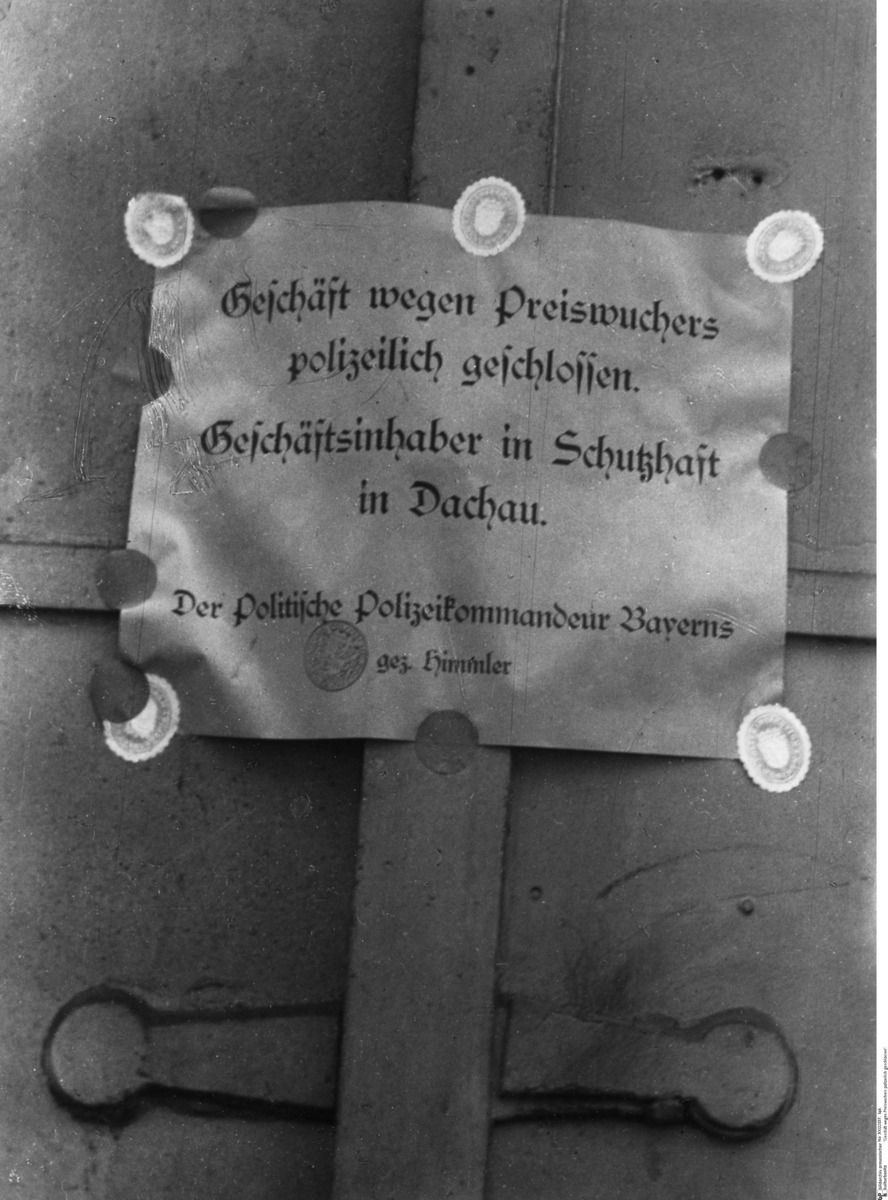Abstract
The Jewish Boycott of April 1, 1933, was a failure for the National
Socialists in many respects. The general public did not greet the
boycott with the enthusiasm sought by the regime; rather, the majority
of the public viewed the boycott with disinterest or disdain. For the
moment, the Nazi leadership dropped plans for further boycotts and
proceeded to harass Jews in other ways. When Hitler took office in
January 1933, there were about 50,000 Jewish-owned small businesses in
Germany; by November 1938 only a quarter remained.
This notice was posted on the door of a Jewish shop in Munich. It
reads: “Shop closed by the police on account of price gouging.
Proprietor in protective custody in Dachau. The Commander of the
Bavarian Political Police. Signed Himmler.”
